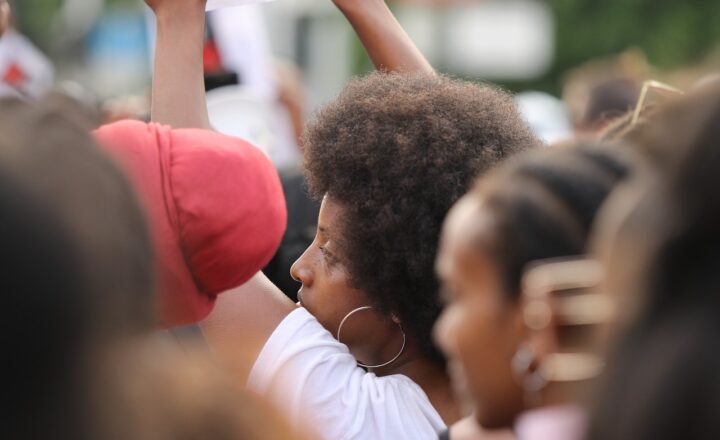How Famous Speeches Throughout History Inspired Movements, Revolutions, and Social Change
November 17, 2024

Throughout history, speeches have played a pivotal role in shaping societies, igniting movements, and even provoking revolutions. The power of the spoken word is an undeniable force that can rally masses, incite change, and inspire generations. This article delves into some of the most iconic speeches in history, analyzing their impact on social movements, political landscapes, and the human spirit.
1. The Importance of Speeches in History
Speeches have the unique ability to convey passion and emotion, transcending time and space. They connect individuals with ideas, persuasive arguments, and often, a shared sense of purpose. Historically, the greatest speeches have transformed societal norms and challenged the status quo. Leaders have used speeches to unify people during times of distress, to motivate them to action, and to articulate visions for a better future.
2. Icons of Rhetoric: Speech Highlights
Several speeches stand out as milestones in shaping history. Here are key examples that demonstrate their impact:
2.1. Martin Luther King Jr.’s “I Have a Dream” (1963)
Delivered during the March on Washington for Jobs and Freedom, King’s speech became a cornerstone of the Civil Rights Movement. His passionate plea for equality resonated deeply with the audience and called for an end to racism in the United States.
In his speech, King painted a vivid picture of a future where all people would be judged by their character rather than their skin color. His powerful oratory inspired millions and laid the groundwork for pivotal legislative changes, including the Civil Rights Act of 1964.
2.2. Nelson Mandela’s “I Am Prepared to Die” (1964)
In this speech delivered during his trial for sabotage, Mandela outlined the injustices of apartheid in South Africa. He took a stand not only for his own beliefs but for the rights of all South Africans. The speech highlighted his willingness to sacrifice his life for freedom and echoed the broader frustrations of a oppressed population.
Mandela’s words became a rallying cry for anti-apartheid movements and affirmed the global struggle for human rights.
2.3. Susan B. Anthony’s “On Women’s Right to Vote” (1873)
As a leading figure in the women’s suffrage movement, Susan B. Anthony’s speech argued passionately for women’s right to vote. By using the legal basis of the Declaration of Independence, she challenged the notion that women should be excluded from voting.
Her articulate arguments and unwavering conviction inspired future generations of activists and eventually led to the woman’s suffrage movement gaining momentum and achieving success with the passage of the 19th Amendment in 1920.
3. The Power of Rhetoric
The effectiveness of these speeches rests on several rhetorical strategies employed by their orators:
- Emotional Appeals: Great speakers often engage their audience’s emotions, making them feel invested in the message. King’s dream visualization and Mandela’s personal sacrifices acted as catalysts for emotional connections.
- Repetition and Parallelism: Repeated phrases create rhythm and reinforce core ideas, as seen in King’s use of “I have a dream” throughout his speech.
- Legal and Moral Arguments: Anthony’s logical framing of women’s rights placed her arguments within the context of American ideals, appealing to both emotion and reason.
These strategies have been mimicked by countless leaders to galvanize public opinion and effect change.
4. Why Modern Society Needs Great Speeches
In today’s fast-paced digital world, the art of speech-making remains crucial. While social media and technology facilitate faster information dissemination, nothing can replace the immediate impact of a powerful voice speaking live to an audience. Great speeches can still:
- Mobilize Movements: Inspiring others through shared experiences and collective action remains essential for social movements, as seen with contemporary movements like Black Lives Matter.
- Challenge Inequalities: Today, leaders are still challenged to confront systemic injustices. Speeches can provide a platform to highlight these issues and rally support for change.
- Create Community and Solidarity: Effective speeches bring people together, fostering a sense of belonging and encouraging collaborative efforts toward common goals.
5. Conclusion
Great speeches have the ability to inspire profound changes, both in the immediate moment and over time. They serve not only as historical artifacts but also as vital lessons in rhetoric and social engagement. Whether through the passionate cry for freedom, justice, or equality, the spoken word remains a lasting legacy of human will and aspiration.
As we continue to navigate complex societal issues, we must learn from the past; embracing the energy of these iconic speeches can ignite our movements for a more just and equitable future. Let us honor the power of speech by using our voices to speak truth to power and to advocate for change wherever it’s needed.
Through understanding the history of these transformative speeches, we comprehend the strength found within us to create movements and inspire the social changes that are yet to come.








